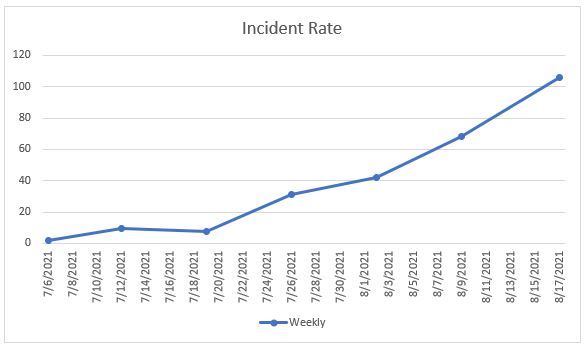“School lunches are a big part of a child’s life,” Krueger continued. “So, we’re really trying to highlight the farm-to-school program. Not only does it help kids eat fresh, local produce, but it also helps the farmers and local agriculture. I think right now it’s all about starting the process. We’re saying here is a school district that has started with fresh farm-to-school produce and maybe next year they’ll build on it. Farm-to-school is not rare at this point, but it’s not widespread, either.”
“What I do is I connect the school district food services director to the producer to help them bring that fresh, local product into the school system for the kids,” said Tina Garland, the farm-to-school program coordinator for the Kentucky Department of Agriculture. “It’s a win/win situation. Our agriculture producers can get the produce to the school within 24 hours of harvest. Otherwise, your food is traveling 1,500 miles, losing freshness and nutritional value.”
“We’ve been working with schools for three to four years now,” said Jerry Wyatt, who farms in Marshall County, near Draffenville, about 30 miles northeast of Graves County Central Elementary School. “We’re still picking up new customers, more schools.” Wyatt raises lettuce hydroponically, providing higher nutritional value. His quick exchange from harvest to delivery provides freshness.
“I was pleasantly surprised. There are about one-third of our sixth graders who choose to eat lettuce, so I think that’s great,” said Central Elementary principal Stephanie Sullivan. “I understand this lettuce doesn’t have the chemicals some lettuce does. So, it’s a healthy choice for our students and our staff. Of course, most of our adult staff members like to eat salads and healthy foods. We also are glad we can help local agriculture.”
“It’s very important as each generation gets further removed from the farm that we educate our young people on where our food comes from, how it’s raised, and its nutritional value,” said Kentucky’s Deputy Commissioner of Agriculture, Bruce Harper. “I think the farm-to-school program is a great tool in teaching our kids about it.”
“Naturally, it’s exciting to me for any group to come to Mayfield and Graves County, but in this situation, it is a great opportunity for the Department of Agriculture to show the people in the area what they’re doing promoting agriculture,” said Second District State Rep. Fred Nesler (D-Mayfield). “In this case, that’s fresh, nutritional food grown in the area. Jerry Barber, in the south part of Graves County, is a farmer who grows sweet potatoes and so, we’re hoping that we can get him involved in providing schools fresh sweet potatoes. That’s a connection we made in talking with the deputy commissioner of agriculture here and, of course, we’d love to get others Graves County farmers involved, too.”
“We have such a good relationship with everyone involved in this project,” said Graves County Schools’ food serviced director Leah Holland-Mills. “Clearly, there are a number of benefits to the farm-to-school program. We’re honored that the Kentucky Department of Agriculture and KET chose to feature our schools as a part of this documentary. I’m looking forward to seeing it!”





